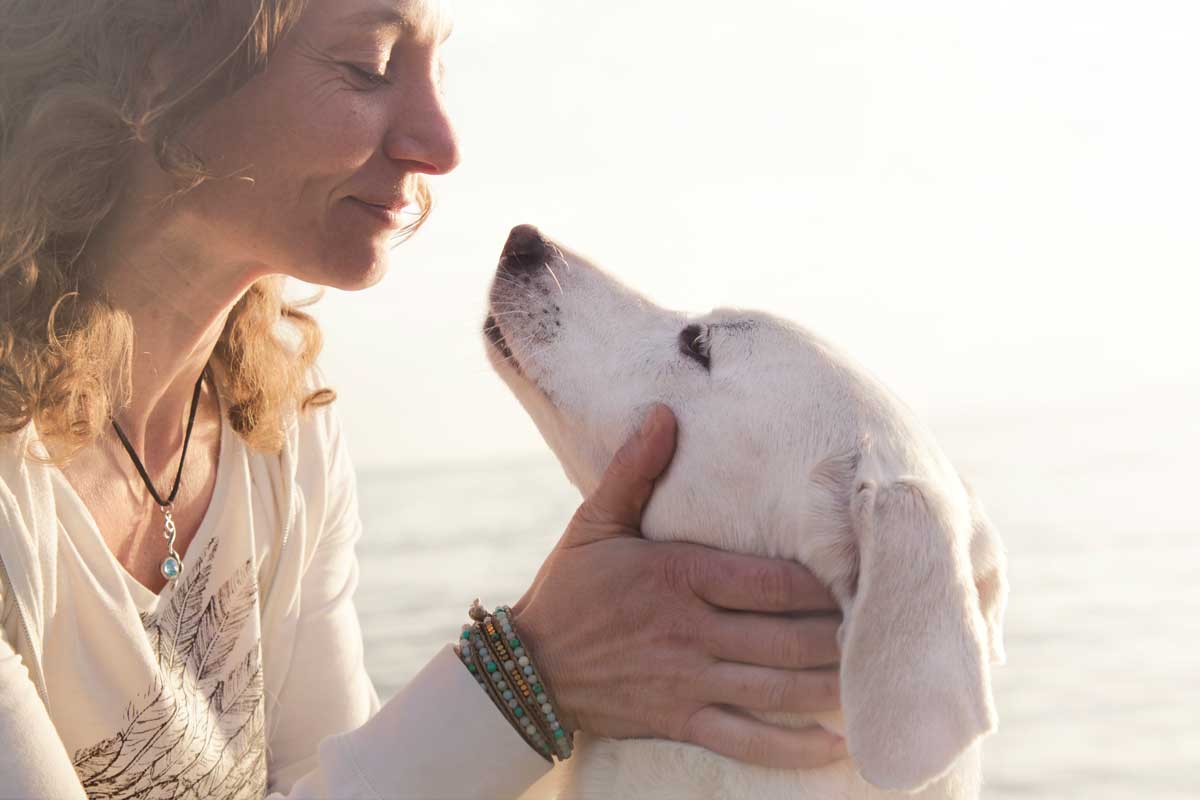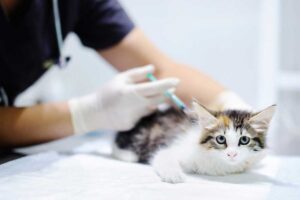As a pet parent, we want our best friends to enjoy a long and happy life. Are there ways to extend a pet’s life? The answer is yes – most likely.
We can potentially add years to our pets’ lives by taking a preventive and proactive approach to their wellbeing.
Here are 7 ways to help ensure your pet lives a healthy life.
Please note that UrgentVet doesn’t provide wellness or preventative care for pets. Our specialty is those after-hours minor injuries and illnesses that aren’t serious enough for the vet ER but can’t wait for your regular vet.
#1: Annual or semi-annual veterinary examinations
If you tend to postpone your own doctor or dentist visits because you feel OK, you likely do the same for your pet, especially if they demonstrate veterinary anxiety or fear. However, this can significantly affect your pet’s health and longevity, since health problems aren’t always obvious.
Preventive or wellness care visits are focused on preventing—not reacting to—disease, injury, and illness. Early detection offers more treatment options, and gives your pet faster—and often more effective and affordable—targeted care. Early detection of disease can often also lead to a better prognosis for your pet.
Wellness exams are as important as those that look for a specific diagnosis. These exams give your veterinarian a baseline of values and findings that they can consult in the future if your pet becomes sick.
#2: Dental care for your pet
Periodontal disease is one of the most commonly diagnosed conditions in pets, affecting 70 percent of dogs and cats older than 3 years of age. This condition lies hidden below the gumline, and affects more than the oral cavity. Untreated periodontal disease not only causes your pet pain, infection, and tooth and oral bone loss, but also the bacteria circulate in the bloodstream and attack the heart, kidneys, and liver, which can lead to organ failure.
Annual dental cleanings under anesthesia are how veterinarians diagnose, treat, and control periodontal disease. Home care (e.g., daily brushing, dental chews, treats, or water additives) is also necessary, to control plaque and tartar between cleanings.
#3: Keep your pet lean
Overweight pets are at increased risk for many chronic or terminal conditions, including cancer, diabetes, kidney failure, and arthritis. They can also experience heightened fear, anxiety, and stress in general, as their weight makes certain activities painful and veterinary care more challenging.
In one study, feeding a portion-controlled (i.e., calorie-restricted) diet extended Labrador retrievers’ lives by 15 percent, or nearly two years, when compared with a free-fed group. Talk to your veterinarian to determine your pet’s daily calorie intake.
In addition to feeding your pet only what they need, you must provide daily exercise. Exercise helps your pet maintain their weight, improves joint health, strengthens their immune system, reduces unwanted behaviors, and provides mental stimulation. Dogs should receive 30 minutes of physical activity per day, with certain working breeds requiring even more exercise. Several five-minute sessions of daily play are sufficient for cats.
#4: Train your pet
Unwanted and inappropriate behaviors are the primary reason that pets are surrendered to shelters, where many are euthanized. Consistent training helps your pet learn proper elimination habits, house manners, and how to behave appropriately in public—improving their chances of being a lifelong family member. Contact a certified positive reinforcement trainer in your area, or ask your veterinarian for recommendations. Socialization is also an important factor of training and helps prevent unwanted behavior.
#5: Vaccinate your pet
Vaccines train your pet’s immune system to recognize and protect against dangerous and deadly diseases, including rabies, parvovirus, distemper, and feline panleukopenia. Many viral pathogens exist naturally in your pet’s environment, which includes boarding, grooming, and veterinary facilities, or areas visited by wildlife, such as your local park or backyard.
Viruses are easily transmitted through respiratory droplets, bite wounds, contaminated surfaces or objects, and infected feces or soil.
Vaccines provide safe and affordable protection against a wide range of threats. Your veterinarian will design a vaccine protocol to match your pet’s exposure risks and lifestyle, to ensure proper protection.
#6: Give your pet year-round parasite prevention
Dogs and cats are vulnerable to diseases from mosquitoes, fleas, and ticks. Deadly heartworm disease, which affects dogs and cats, has been diagnosed in all 50 states. Ticks are responsible for many diseases, including Lyme disease, Rocky Mountain spotted fever, and ehrlichiosis. Fleas can quickly infest a home, and cause your pet misery and discomfort, and sometimes intense allergic reactions.
Monthly heartworm, flea, and tick prevention products are safe and simple ways to keep parasites and their diseases away from your pet. Regular treatment can also reduce the number of fleas and ticks in your area, minimizing their risk to humans and unprotected pets.
#7: Say “Yes” to annual veterinary screening tests
Yearly health tests for your pet should include a heartworm and tick-borne disease screening, fecal floatation (i.e., internal parasite screening), and an annual blood work panel. These diagnostic tests provide insight into your pet’s internal health and ensure their parasite prevention program is effective.
Annual blood work may seem unnecessary if your pet appears healthy, but routine monitoring can catch chronic diseases (i.e., kidney failure, diabetes, or anemia) long before a pet is visibly sick, resulting in a better outcome.
A proactive, preventive approach to your pet’s care at home and at the veterinary clinic gives your dog or cat every advantage toward a happier, healthier, and longer life with you. Discuss your pet’s individual care needs with your family veterinarian, and follow their recommendations. Finally, when those minor illnesses and injuries happen and your regular vet is closed, UrgentVet is here to help, because your pet can’t wait to feel better.




